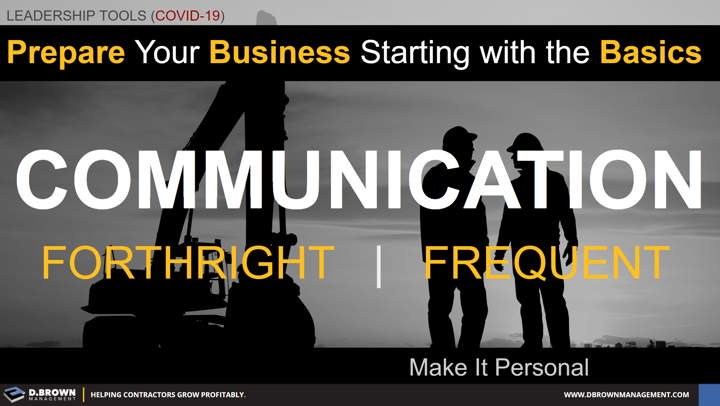And that is largely about effective communication and consistent actions.
"Given the same information, all reasonable people will come to the same conclusion."
First of all, realize that there is a wide range of individual capabilities when it comes to processing information speed and quantity, assessing conflicting information, and the absence of information.
Under stress and overload scenarios, most people’s “normal” capabilities decline.
Your team consists of people across that full range of capabilities and most are under stress. You must understand that as you design and implement your communications.
Your job as a leader is to communicate in a way that will calm nerves and align people, influencing them in the right direction.
Be forthright in your communication.
- State clearly what you know and what you don’t know. No one expects you to have all the answers.
- Be clear about what you are learning, planning, and what you have decided, as those are all different.
- Be clear about your own fears and concerns. That helps validate what others are feeling and opens dialogue.
Frequency matters. Remember that most messages need to be heard 7-10 times. Repeat yourself often. Keep it simple.
You are being pulled in a thousand directions. Make the time for personal 1:1 and small group communications. Most of the time, people just need reassurance of why they have confidence in you as a leader.

